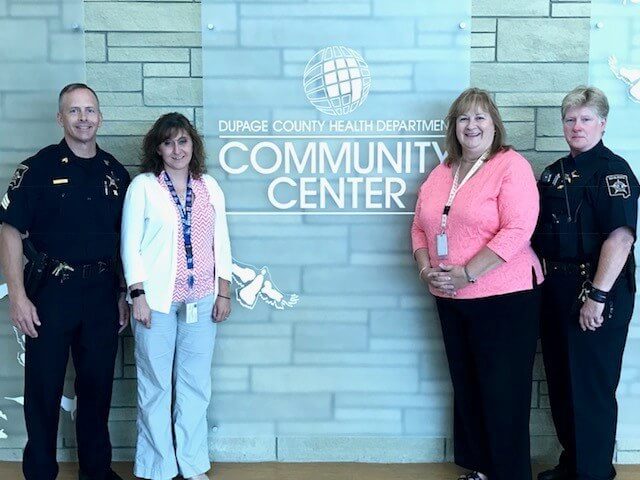The large population of individuals with mental illness in the nation’s criminal justice system, and their risk of recidivism, is an ongoing public health challenge. To reduce their numbers and minimize their risk of reoffending, the DuPage County Health Department (DCHD) has partnered with the DuPage County Sheriff’s Office to implement the DuPage County Post-Crisis Response Team (PCRT) project. With successful implementation of the project, decreases in recidivism, increases in effective linkages to care, and improved coding of crime reports are expected. Ultimately, the PCRT framework and crime reporting codes could be adopted, adapted, or replicated by other jurisdictions to further address mental health challenges across the country.

Using a working definition and characteristics of innovation in public health, and with funding from PHAB’s Center for Innovation, the DCHD is advancing strategies, such as cross-sector teams comprised of a mental health clinician and a DuPage County sheriff’s deputy, to conduct follow-up visits with individuals with potential mental health issues who have previously encountered law enforcement, and link them to the appropriate care.
The initial PCRT pilot period lasted from June 1-November 30, 2017. Post-pilot data indicated that the program successfully connected participants to follow-up care at different mental health providers throughout the county. The successful pilot supported continuation of the PCRT program at the county level, and potential growth to municipalities within DuPage County. PCRT is a key part of the county’s Behavioral Health Collaborative, a cross-sectoral partnership that aims to provide better care to residents with mental health issues that encounter the justice system.
The PCRT program has allowed our community to enhance the relationship between criminal justice and mental health. This new relationship allows for better understanding of each system, which leads to effective intervention and linkage to appropriate mental health services. This can change the path of someone struggling with mental illness from continued contacts with police/criminal justice to a path of recovery and support.
The Behavioral Health Collaborative is also examining opportunities for data collection and analysis created by the unique partnership of DCHD and the DuPage County Sheriff’s Office, including standardizing Uniform Crime Reporting (UCR) codes used to document mental health-related calls to law enforcement. DuPage County has over 30 different police municipalities, all of whom can classify mental health codes differently. Using a survey sent to all departments, DCHD is seeking to take stock of the most commonly used codes and then use this information to make recommendations for streamlined, common UCR codes. The ultimate aim is to make the process of assessing frequency, location, and type of mental health crisis calls easier for community stakeholders.
The initial PCRT pilot project highlighted the need for universal record keeping between DCHD and the Sheriff’s Office regarding the outcomes of individuals involved in the program. Data sharing between the locations is complicated by legal considerations over private client information, but developing a central log continues to be a main focus of the project.
The necessity of compelling data to illustrate what a project brings to the table is obvious. What is less obvious is that the project should be designed with data in mind, which can be a lengthy process but undoubtedly a rewarding one. When done carefully, taking time to identify which outcomes are important forces project planners to talk with stakeholders about what they see and how they can help.





